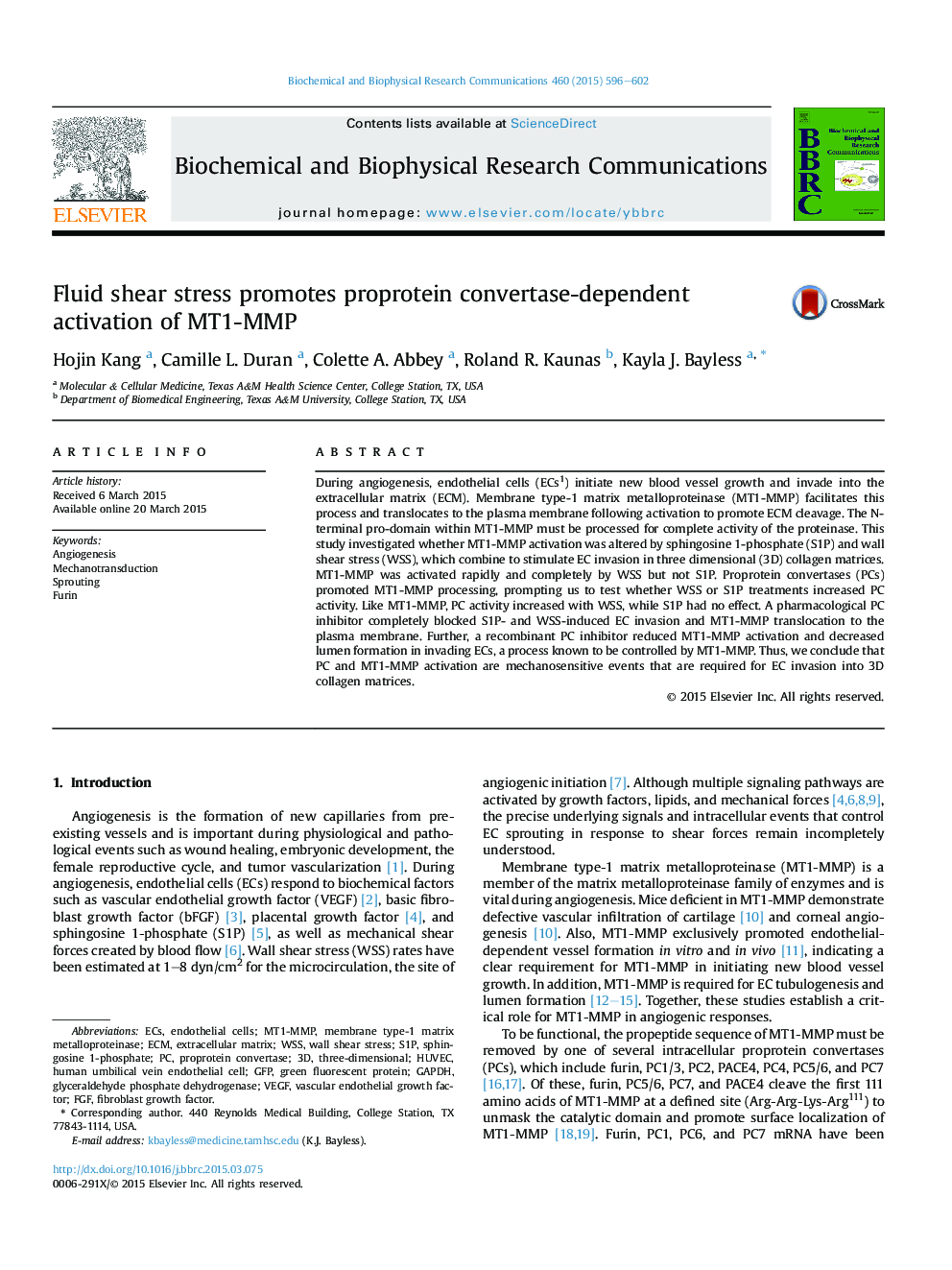| Article ID | Journal | Published Year | Pages | File Type |
|---|---|---|---|---|
| 10752018 | Biochemical and Biophysical Research Communications | 2015 | 7 Pages |
Abstract
During angiogenesis, endothelial cells (ECs1) initiate new blood vessel growth and invade into the extracellular matrix (ECM). Membrane type-1 matrix metalloproteinase (MT1-MMP) facilitates this process and translocates to the plasma membrane following activation to promote ECM cleavage. The N-terminal pro-domain within MT1-MMP must be processed for complete activity of the proteinase. This study investigated whether MT1-MMP activation was altered by sphingosine 1-phosphate (S1P) and wall shear stress (WSS), which combine to stimulate EC invasion in three dimensional (3D) collagen matrices. MT1-MMP was activated rapidly and completely by WSS but not S1P. Proprotein convertases (PCs) promoted MT1-MMP processing, prompting us to test whether WSS or S1P treatments increased PC activity. Like MT1-MMP, PC activity increased with WSS, while S1P had no effect. A pharmacological PC inhibitor completely blocked S1P- and WSS-induced EC invasion and MT1-MMP translocation to the plasma membrane. Further, a recombinant PC inhibitor reduced MT1-MMP activation and decreased lumen formation in invading ECs, a process known to be controlled by MT1-MMP. Thus, we conclude that PC and MT1-MMP activation are mechanosensitive events that are required for EC invasion into 3D collagen matrices.
Keywords
ECMWSSMT1-MMPS1PThree-dimensionalGFPHUVECGAPDHFGFECsAngiogenesisWall shear stresssphingosine 1-phosphateSproutingHuman umbilical vein endothelial cellEndothelial cellsVascular endothelial growth factorVascular Endothelial Growth Factor (VEGF)fibroblast growth factorFurinExtracellular matrixmembrane type-1 matrix metalloproteinaseMechanotransductiongreen fluorescent proteinproprotein convertaseGlyceraldehyde phosphate dehydrogenase
Related Topics
Life Sciences
Biochemistry, Genetics and Molecular Biology
Biochemistry
Authors
Hojin Kang, Camille L. Duran, Colette A. Abbey, Roland R. Kaunas, Kayla J. Bayless,
